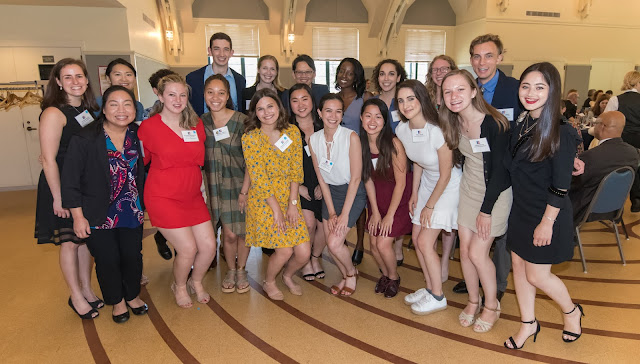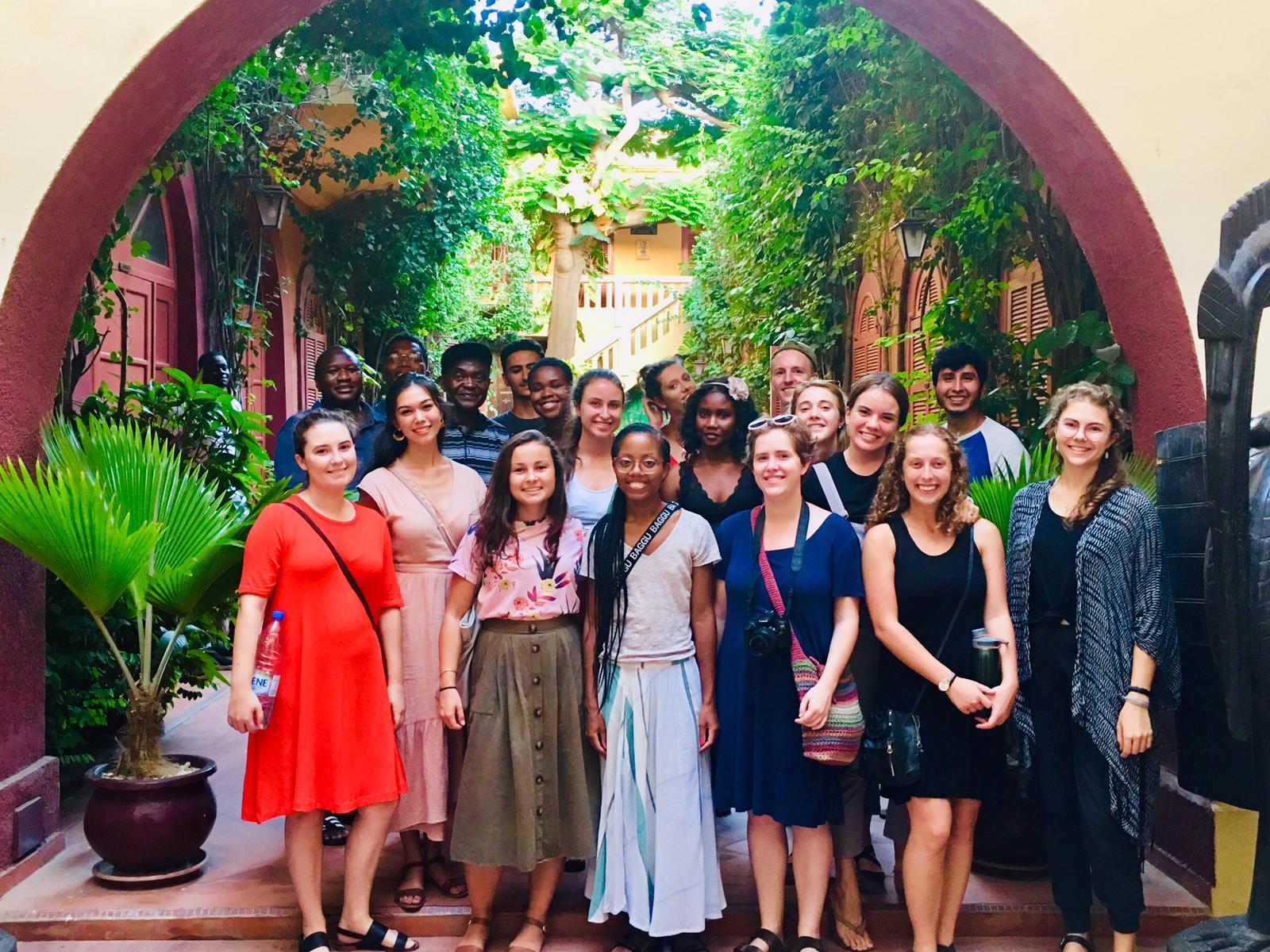Starting on a New Adventure: An Intro to Boren
 |
| All the students within the School of International Service at American University who won nationally competitive scholarships. |
 |
| Madame Lang introducing me and Esther, a Boren Fellow, to Maria, who previously studied abroad in Senegal on the Boren. |
The Boren is a confusing award. Since receiving it, I've been asked numerous times, "Wait, what is it?" Hopefully, this post will clear some things up.
According to the Institute of International Education (IIE – the organization that administers the Boren), the Boren Scholarship and Fellowship were "established by Congress through the David L. Boren National Security Education Act of 1991 to address national shortfalls in languages and cultural expertise critical to national security." Essentially, in the midst of the end of the Cold War and the start of the Gulf War, the U.S. suddenly found itself woefully unprepared for a new era of geopolitics. The rumor at the time was that the State Department only had one person who spoke passable Arabic. The Boren seeks to rectify this, the concept being if we can militarily prepare an arsenal for potential conflict, why can't we do the same thing with human capital?
So, Boren Awards fund undergraduate and graduate students to study less commonly taught languages in world regions critical to U.S. security interests. We, in turn, commit to working in the federal government in something that relates to national security for at least one year following graduation. That's the basics of it.
Boren scholars and fellows study in just about any non-Western country (that the US isn't directly hostile with), with the top five-most studied languages being:
1) Arabic
2) Mandarin
3) Russian
4) Swahili
5) Portuguese
And the top five countries are:
1) Jordan
2) China
3) Tanzania
4) Senegal
5) India
There are also special flagship language initiatives within the Boren which were created to promote language study in Africa, South Asia, and Indonesia. As part of the African Flagship Languages Initiative (AFLI), I am taking intensive French and survival Wolof courses in Gainesville, Florida at the University of Florida –– the premier African languages department in the country –– for two months. At the end of July, I head back to DC with almost two weeks to kill until leaving for Senegal August 12th. My end date is still a little hazy, but, as of now, I plan on returning to the States at the end of November.
I'm a little disappointed, as I had hoped to stay in Senegal longer, but ended up not for financial and bureaucratic reasons (let's just say I'm a little unhappy with my university). But I've also come to a place where I'm accepting where I am now, where I will be in six months and twelve months after that, and that this won't be my last time overseas. I feel incredibly lucky to embark on yet another study abroad adventure, but I'd be remiss to say I'm not also feeling anxious and a little afraid. Here's to a new adventure.


Comments
Post a Comment